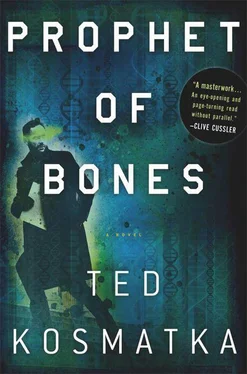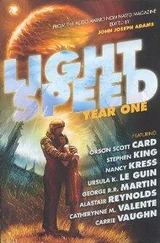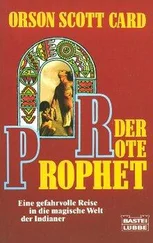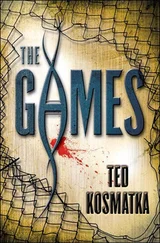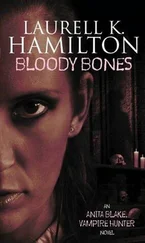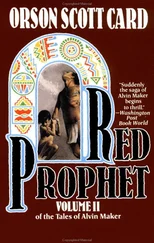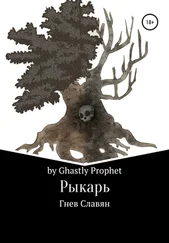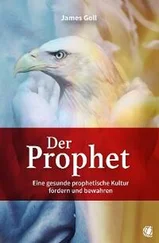Paul looked at her. In their town, Catholics went to the public schools; Presbyterians, Baptists, and Lutherans all had their own private institutions. “But you came today,” he said.
“One last time. To tell you.”
“Your parents don’t have to listen. We can still hang out when he’s not around.”
“We can’t,” she said. “My parents don’t want me to.”
“Why?”
“Your father.” She lowered her eyes. “My parents think he’s crazy.”
* * *
Later that night, Paul stood in the dim attic light next to the cages.
“This is what I wanted you to see,” he told his mother.
His mother stood in the half-light.
“What is this?” There was something in his mother’s voice. Some mixture of emotions he couldn’t identify. She stood facing the cages, a startled expression on her face.
Paul held Bertha up by her tail for his mother to see. The mouse was a beautiful golden brindle, long whiskers twitching.
“She’s the most recent generation,” Paul said. “An F4.”
“An F4, you say?” She shook her head with wonder. “Where did you learn these terms?”
“Books.” Paul smiled as he looked down at the mouse. “She’s kin to herself.”
“So this is your project for the fair?”
“Yeah. I’ve been working on it for a long time.”
“That’s a big mouse,” his mother said.
“The biggest yet. Fifty-nine grams, weighed at a hundred days old. The average weight is around forty.”
Paul stroked the mouse’s tawny fur. The little nose twitched—long colorless whiskers that existed at the very edge of visibility. Paul gave the mouse a tiny sunflower seed, and it rose up on its haunches, gripping the seed in tiny front paws. Paul had always thought there was something strangely human about a mouse’s stance when it fed that way.
“What have you been feeding it to get so big?” she asked.
Paul put the mouse on her hand. “It has nothing to do with food,” he said. “I feed all the mice the same. Look at this.” Paul showed her the charts he’d graphed on the white poster board, like the figure in his life sciences book, a gentle upward ellipse between the x- and y-axes—the slow upward climb in body weight from one generation to the next.
“One of my F2s tipped the scales at forty-five grams, so I bred him to several of the biggest females, and they made more than fifty babies. I weighed them all at a hundred days old and picked the biggest four. Then I bred those and did the same thing with the next generation, choosing the heaviest hundred-day weights. I got the same bell-curve distribution—only the bell was shifted slightly to the right. Bertha was the biggest of them all.”
“You just bred the biggest ones?” his mother said.
“Yeah. I keep the big ones in the glass aquariums, apart from the others.”
“It was easy as that?”
“It’s the same thing people have been doing with domestic livestock for the last five thousand years. Cattle are bigger now than they used to be. Sheep give more wool. Our chickens lay more eggs.”
“But this didn’t take thousands of years.”
“No, it kind of surprised me it worked so well. This isn’t even subtle. I mean, look at her, and she’s only an F4. Imagine what an F10 might look like. I think I can make them even bigger.”
She laughed nervously. “It sounds like you want to turn them into rats.”
“Rats are a different species, but I bet with enough time… hundreds of generations… I might be able to get them close to that size.”
Her face grew serious. “You shouldn’t talk like that.”
“It’s just directional selection. With a diverse enough population, it’s amazing what a little push can do. I mean, when you think about it, I hacked off the bottom ninety-five percent of the bell curve for five generations in a row. Of course the mice got bigger. I probably could have gone the other way if I wanted, made them smaller.”
“You father won’t like this,” she said. She handed the mouse back to Paul.
“I know. I’ll tell him about it at the science fair. After I’ve won. He can’t get mad at me then.”
His mother’s brow furrowed. “I don’t know,” she said. “What if he finds them before the fair?”
“He won’t,” Paul said. He put the brindle mouse back in the aquarium. It scampered across the cedar chips toward the food dish. “Besides,” he said softly, so that his mother couldn’t hear. “This is all I have now.”
“Just be careful,” she said.
“There’s one thing that surprised me though, something I only noticed recently.”
“What’s that?”
“When I started, at least half of the mice were albino. Now it’s down to about one in ten.”
“Why does that matter?”
“I never consciously decided to select against that.”
“So?”
“So, when I did culls… when I decided which ones to breed, sometimes the weights were about the same on two mice, so I’d just pick one. I thought I was picking randomly, but now I’m not so sure. I think I just happened to like one kind more than the other.”
“Maybe you did.”
“So what if it happens that way in nature?”
“What do you mean?”
“It’s like the dinosaurs. Or woolly mammoths, or cavemen. They were here once; we know that because we keep finding their bones. But now they’re gone, and we can only see them in museums.” He paused. “God made all life about six thousand years ago, right?”
“Yes.”
“But some of it isn’t here anymore.” Paul looked at his mice. “What if it’s like that with God? It wouldn’t have to be on purpose, just a few percentiles of difference, the slightest perturbation from random, this big hand reaching down, picking which ones stay and which ones go.”
Paul put the lid back on the aquarium. “Some kinds die out along the way.”
It happened on a weekend. Bertha was pregnant, obscenely, monstrously. Her distended abdomen spread around her as she squatted on her haunches and nibbled at a piece of lettuce.
Bertha sat alone in the smallest aquarium, an island unto herself isolated on a table in the middle of the room. A little tissue box sat in the corner of her glass enclosure, and Bertha had shredded bits of paper into a comfortable nest in which to give birth to the next generation of goliath mice.
Paul dropped another piece of lettuce into the cage and smiled.
Whiskers twitching, Bertha lumbered forward across the cedar chips and sniffed the new arrival.
Then Paul heard it: the sudden hum of the garage door. He froze.
His father was home early.
When the garage door finally stopped, Paul heard his father’s car ease into the open parking bay below. The brakes squeaked as the car pulled to a stop, and then his father cut the engine. Paul considered turning off the attic light but knew it would only draw suspicion. Instead he waited, hoping.
The garage was strangely quiet, the only sound the ticking of the car’s engine down below. Paul listened, waiting for the tread of his father’s footsteps heading into the house. The sound didn’t come.
Paul’s stomach dropped when he heard the creak of his father’s weight on the ladder.
There was a moment of panic then—a single hunted moment when Paul’s eyes darted for a place to hide the cages. It was ridiculous; there was no place to go.
The creaking ladder grew louder as Paul’s father ascended.
“What’s that smell?” his father asked as his head cleared the attic floor. He stopped and looked around, a pale disembodied head jutting from the floorboards. “Oh.”
And that was all he said at first.
That was all he said as he climbed the rest of the way. He rose to his height and stood like a giant, taking it in. The single bare bulb draped his eyes in shadow. The muscle in his jaw clenched and loosened. “What is this?” he said finally. His dead voice turned Paul’s stomach to ice.
Читать дальше
